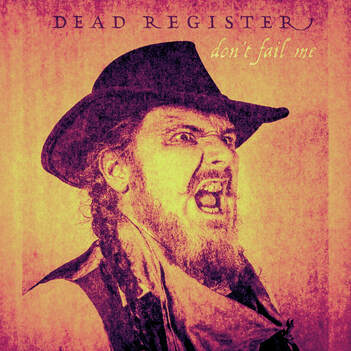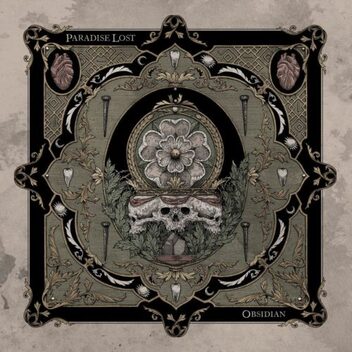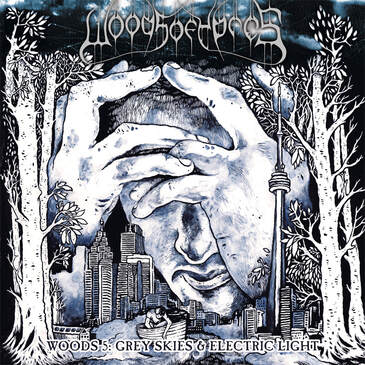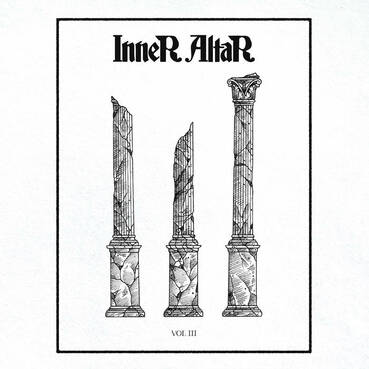
Written by: The Administrator
One of my greatest regrets as a reviewer is dropping the ball on a writeup of Dead Register's stellar Captive EP, back in the primordial days of the Sleeping Village's so-called tenure. There's really no excuse for not finishing said review, particularly given how struck I was with their potent blend of highly emotive post-rock/doom. Thus: after spending a long while digesting Dead Register's latest EP, I knew it was time to (finally) talk about why you should be listening to 'em. This EP is a bit of a conglomerate of material, featuring a (killer!) new track, some live versions of previously released material, and a remix of the title track provided by industrial/doom metal duo Lament Cityscape. There's five track contained herein, and the variety on display makes for an intrinsically odd albeit very enjoyable release. Don't Fail Me ultimately serves as a quality amuse-bouche in advance of Dead Register's forthcoming full length.
2 Comments

Written by: The Voiceless Apparition
32 years?! It's crazy to say that Paradise Lost have been a band for 32 years. The masters of doom and melancholy have been going steady ever since then with no break-ups or hiatuses in between. After a brief wait, Paradise Lost return with their 16th opus Obsidian, the follow-up to the masterful Medusa. Said album was a slight return to their original death/doom roots although within a modern context...but enough about the past. Obsidian is split into three different and distinct styles. You have the more death/doom-leaning tracks, the more gothic rock/metal-based tracks, and a subtler bridging between the two styles. It feels like a natural progression from the last album, with many of the trademarks we all love and adore about Paradise Lost, but with many twists and turns along the way. Welcome to the world of Obsidian.  *An Addendum to our Albums of the Decade List This brilliant album somehow slipped my mind back when we were reflecting on the decade as a whole. That travesty will not stand! Thus: Being a pseudo-medieval Village existing on the cusp of the gothic period, we have a certain appreciation for gothic metal. The fifth and (unfortunately) final effort from Woods of Ypres is both a genre stalwart, and a general shining star in the past decade of heavy music. The entire affair is obviously informed by the death of vocalist David Gold two months prior to release. Given the death-and-legacy oriented themes, moments such as the refrains of "the dead are to be forgotten" and "we shouldn't worship the dead" on "Adora Vivos" take on an...eerily apropos leaning.  Sorry to break it to ye, hopeful peasantry: life here at the Sleeping Village is, alas, generally a little mundane. Cobblestones must be swept, crude chamber-pots must be chucked from second story windows, plague pits must be dug. Day in, day out. Thus, when something unexpected enters our humble township, must fanfare must be made. The unexpected article in question? Vol III, the debut album from Kansas City doom rockers Inner Altar. Bearing a minimalist album cover and a distinct lack of adjectives in their promo material, Inner Altar seem like masters of understatement. From the onset, who knew that their debut album contains such an impressively well-conceived and well-articulated breadth of sights and sounds? Vocally, Inner Altar’s approach reminds, fairly significantly, of Domkraft’s expansive stylings. Howl-into-the-void vocals are certainly coming into their own as of late, and while the echo and deliberate weightlessness are certainly a continuation of modern doom’s spaced-out leanings, they feel somewhat rooted in the distantly melancholic whine of the immortal Terry Jones, or even early-era Liebling. The Pagan Altar connection doesn’t end there--the momentous central motif on the paganic Altar, for example, would feel at home on a Vol III highlight such as "Undine’s Kiss." It’s not all doom and gloom, however. Inner Altar’s subtle shapeshifting goth-rock tendencies give them an edge in a sea of amp worshipers. While the guitar tone is certainly present, hefty, and otherwise effective, riffs don’t ever feel like the sole focus. Significant attention is given to melody, to percussion, and, most especially, to the transitions between passages. While they never truly approach the post-punk accessibility of, say, The Chameleons, a regard for gothic introspection is apparent across the board, particularly in the refreshing approach to hooks. If you’re looking for more namedrops, Demon Head’s folksy leanings seem fairly apt. But at the end of the day, these guys sound like their own damn band, not a simple knockoff. Credit where credit is due. Doom lives or dies by its ability to keep things fresh and intriguing. To their great credit, Inner Altar take this challenge in stride, and interesting moments abound. Take, for example, the tempo shifts in "Pagan Rays | Numbered Days." The pseudo-pastoral baroque on "Prelude." The balls-to-the-wall Sabbathian riffage that (appropriately) busts the door and storms in on "Castle Storm." The brief percussive march thrown into "Dethroned & Fugitive," which breaks up plaintive wails and hefty bass with a certain grace. Not to be undone, the title track features a notably aggressive vocal stance. While remaining utterly unlike anything else the album offers, fits the bill incredibly well. Moments like these maintain my vested interest in a given track--and thus, the album as a whole. All told, Vol III consistently displays songwriting that deliberately avoids fatigue. Evoke a gloomy mood without boring your audience: usually much, much harder said than done. Not so here. The most difficult aspect of reviewing this album has been consideration of its staying power. It’s an unusual conundrum, yet one that garners Inner Altar a net zero negative points. While time spent listening to Vol III is completely satisfying in its immersive quality, I found time after time that as the title track’s droning outro fade, I struggle to remember distinct moments from the album--riffs, hooks, melodies. They seem to exist entirely within the confines of the albums runtime, and while this ultimately makes for a genuinely excellent experience in the moment, there is little that carries over when Inner Altar isn’t actively filling airspace. With that said, a tangible side effect is that the past few weeks have born multiple instances of turning to Vol III, simply because the listening experience is so supremely gratifying in the moment. With surprising variety in genre influence, and clear attention given to composition, Vol III is a complex album. More than that, it is a distinct triumph. Whatever they are doing down in Kansas City’s doom department is working inordinately well, with Inner Altar being further proof of actualized potential. Vol III is, quite simply, a wonderful effort. Highly recommended. Inner Altar - Vol III was released Jan. 18th from The Company |
Welcome!
We provide thoughtful reviews of music that is heavy, gloomy...and loud enough to wake us from slumber. Written by a highfalutin peasantry!
|
 RSS Feed
RSS Feed